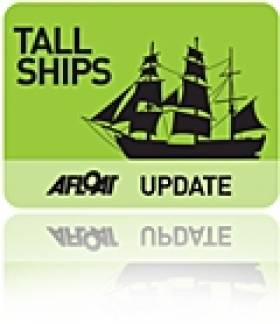Displaying items by tag: voluntary trusy
Sail Training Ireland Assumes Mantle of Asgard
Writing in the Irish Independent on Saturday, WM Nixon welcomes the introduction of Sail Training Ireland as a big step towards getting Ireland back into tall ship sailing.
Nixon also pays tribute to Ireland's previous square-rigger, Asgard II, which held its own among taller competitors for almost three decades before its sinking in the Bay of Biscay in 2008.
That ship was also remarkable for being "one of the very few government owned and run sail training ships in the world".
In the wake of Asgard II, a new approach is being taken with Sail Training Ireland - which is an officially recognised voluntary trust, actively supported by the Irish Sailing Association, that is open to anyone and free to accept donations and corporate endowments.
"The sailing community and all those interested in promoting maritime affairs now have an opportunity for self-reliance," writes Nixon, who notes that while we get back on the road to having our own tall ship, Sail Training Ireland will be able to place Irish trainees on other ships already sailing for invaluable experience.
























































